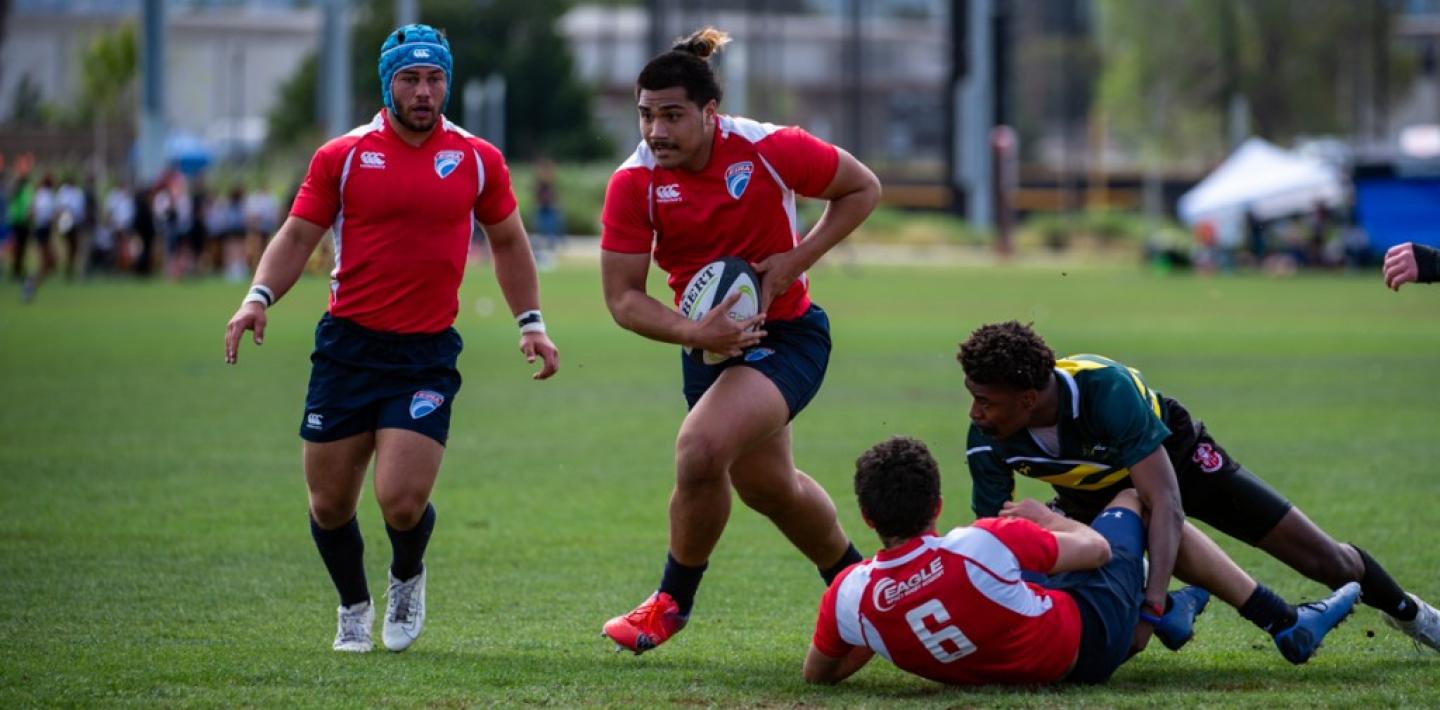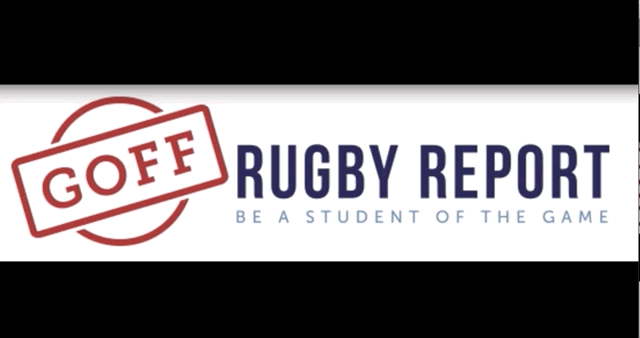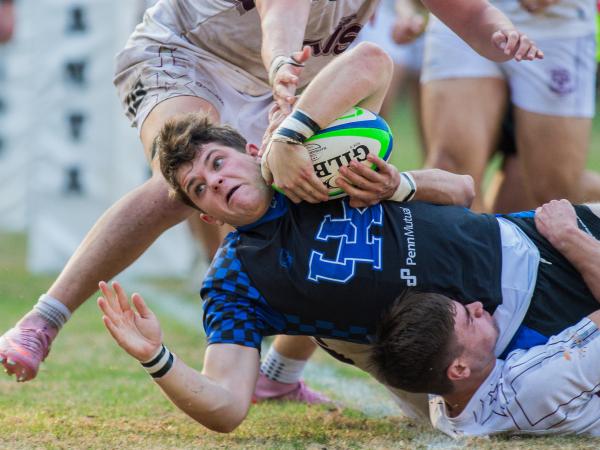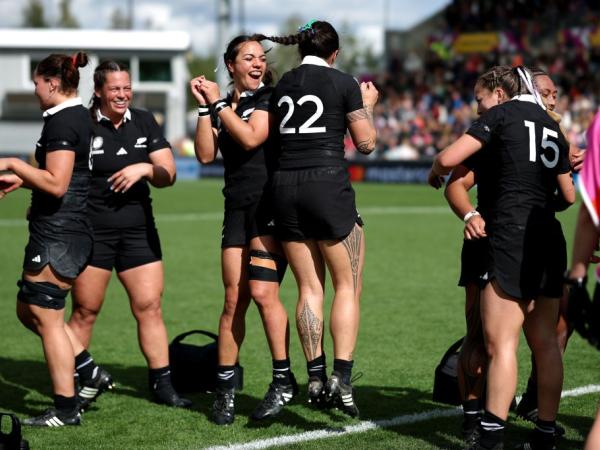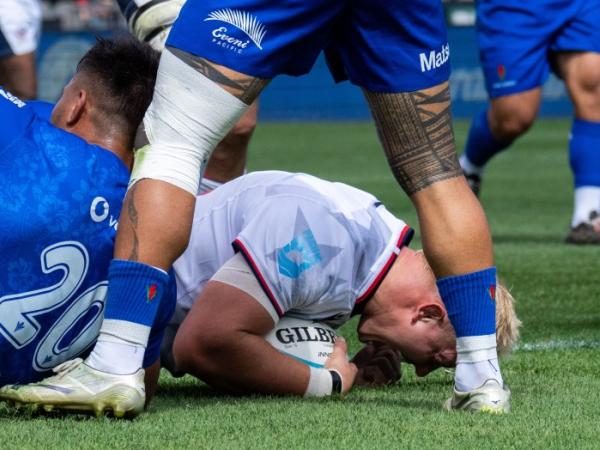It's not necessarily all clear sailing in the new Good Ship Youth & High School, as there remain some issues to deal with, but there are also some developments of interest that could be good news for everyone.
The new US Youth & HS organization is governing the game as USA Rugby climbs out of its hole, but will that be the case long-term? As anyone who has been in rugby for any length of time will attest, the game is full of strong personalities who don't like to be told what to do. That's a good thing in that such personalities persevere in the face of various speed bumps that slow development of the game down, but it can also mean a struggle to reach consensus, and those who don't like the compromise often immediately talk of going off on their own.
And in these troubled times, with USA Rugby's authority hanging by a thread, going off on your own seems that much easier. It's probably not, but it seems that way.
So here are a few issues, developments, and questions-to-be-answered in the youth & HS game going forward.
Should USA Rugby Be The Only One Blamed For Dues Levels?
While Youth & HS representatives are unhappy with USA Rugby's $25 (including insurance) dues proposal, SGBs are routinely charging $100 to $150 per player to run things locally. So some parent who is looking at a dues bill of several hundred dollars gets annoyed—"what's all this for?" she asks. And of course while the club needs its dues, anyone with the club is going to roll his eyes and say "Oh, well, the State Governing Body dues are in there, and USA Rugby too." Passing the blame buck is a time-honored tradition.
So the new SportLomo membership, as it gets set up (and remember, we've got a skeleton staff on reduced pay trying to make this work, be patient) members will be able to see where all their dollars go. That may be a better bit of optics for USA Rugby, because rugby dues tend to flow locally, with team dues more than state or union dues, which are more than national dues.
Of course, that's just per person. When you look at it from a total funds point of view, it's the big organizations that rake in the big bucks.
Where does US Youth & HS fit in here? Are they expecting to charge dues as well, and fund big-time projects? Watch for that.
Trouble In SGB Leadership Groups?
Rugby Colorado got a bit of egg on its face when the IRS posted a note saying that the organization was three years behind in filing its tax forms. Rugby Colorado, said the IRS, had forfeited its 501c3 designation. Now, this isn't going to end up as bad as it looks. According to Rugby Colorado's (volunteer) Chairman, Tom Ren, those forms have now been filed, and in fact were in IRS hands at least a month before the August 11 posting saying they were behind.
That is certainly a believable scenario as the IRS isn't know for being especially quick in doing anything, let alone doing anything when staffing is haywire due to a pandemic. But this episode still spells out a problem within some SGBs. The leadership, even paid leadership, can talk a big game about how knowledgeable and competent they are, but in the end you're at the mercy of someone's claims. Does someone with an accounting background know enough to deal with the IRS? Now that you're a 501c3, do you know how to behave as such? And if something's wrong (as with USA Rugby), do you have the guts to say so now, not two years later when it's worse?
Having employees get furloughed due to COVID doesn't help.
The solution, say some, is to go back to volunteer leadership. The paid leadership model, promoted somewhat disingenuously by Rugby Oregon (which had backing from bingo income in a somewhat unique situation), doesn't always work well. Often, the Executive Director of an SGB's first job is to raise enough money for his or her salary. That can push other initiatives to the back burner, while on the front burner will be the easiest income-producer of all, dues. Raise the dues and you address your immediate problem.
But volunteers are a problem, too. "Hey, I'm just a volunteer, I'm doing this for free" is a common excuse when something goes wrong. Basically you need an agreement that is like an employment contract, but with no money changing hands. You need some regular oversight to monitor someone's sense of honor.
Oh, and you need at least three people to know all the passwords, and you need two people to approve monetary payments, just in case someone in a weak moment makes off with your SGB's cash.
Rugby Colorado has likely dodged the IRS ire, but members are still a) unhappy that it happened and b) unhappy that they just found out about it.
"You can argue Ted Stevens Act all you want, but if the IRFU or WRU says no because they don't feel comfortable, then you might not be able to tour."
Do You Really Need An SGB?
What if, instead of paying dues to your SGB, you just registered every player as an at-large to USA Rugby? What if USA Rugby only took individual memberships. You travel the country, show up for Atlantis or Rock Rugby or EIRA or 5785 and you can play because you've got your USA Rugby memberships. (Remember when they sent you a membership card and a bumper sticker? Good times.) What you would need would be some mechanism for tying a player to his or her club or regular team. That wouldn't be USA Rugby's problem, but the problem of a specific league. The SGB wouldn't be involved at all, as it would be the league or conference (as in college and senior club) that would run the day-to-day operations.
The counterpoint goes something like this: SGBs do more than just post the league on the website (and websites cost money). They run disciplinary. They schedule the referees. They run the championships. They rent facilities and secure trainers for playoffs. Perhaps the biggest hidden expense in those SGB dues are for the referees. Ref per-game costs are usually about $100. If you didn't incorporate that cost into your SGB dues, you'd end up with a nice $500 to $1000 fee at the end of the season. So if an SGB charges you $130 per player for a 30-player team, out of that $3,900, maybe $700 would go straight to refs that officiated your team's home games.
Counterpoint to the counterpoint: Leagues can run their own championships, and their own disciplinary. In addition, SGBs have gone away from what they should be doing, which is ensuring safety and fairness in youth play, and facilitating growth.
You'd think SGBs would work harder on growth because dues from those players help pay for the staff. But facilitating or creating growth in the game is a lot of work, not flashy, and not always immediately rewarding.
What If You Don't Need What A Governing Body Is Selling?
The argument against any direct connection between Youth & HS and USA Rugby is heavily related to the question of what USA Rugby actually provides Youth & HS. It's a difficult question to answer, because often the answer is generally: we won't block you from doing this. Certainly touring and accepting tours seems to be something of an issue. Whether it can be resolved in the courts or in negotiations, or is a bright-line limit on Youth & HS is difficult to predict.
Our sponsors, Irish Rugby Tours, say they have always had to secure permission from the home NGB of a touring team to make a tour happen. The idea of having a different organization sign off instead is alien to other unions. You can argue Ted Stevens Act all you want, but if the IRFU or WRU says no because they don't feel comfortable, then you might not be able to tour.
And then there's the idea that your team is too strong for your league. Around the country there are high school teams that so dominate their local leagues that they basically play their JV team in league play (and still win), while they front-line squad plays an out-of-state schedule. If a team is dominant but not quite that deep, it might still opt to play outside the league structure. Why should they pay all those SGB dues if they don't use the services?
So, there are possible solutions to these two issues:
Touring—what if you had a touring fund run through US Youth & HS. Basically you realize that a touring team would need to pay for a full membership in USA Rugby, which for a touring team would likely be around $600. Well, if 20 teams tour every year, you could agree that there's a 50-50 split between the team and this touring fund to pay for full USA Rugby membership. It would cost US Youth & HS $6,000, which is an additional $0.17 per person (give or take, depending on national membership). It would be so simple to just add $1 to whatever dues US Youth & HS wants, and use that money ($30,000? $35,000? $45,000?) to help offset that additional touring cost.
Too Good For The State—A solution already exists for this. Some states already have a dues structure for teams that don't use the state league. They would pay a team fee and a much-reduced per-player fee because the SGB still has a website and staff and disciplinary and referee and insurance to worry about. Then they'd also pay a match fee if a game was played in-state. This plan is probably a small savings to a large team—maybe $1,000—but it's a savings, and the concept is certainly viable.
But look at the concept above about being an at-large team. You could do that. You could just disassociate yourself from an SGB and register as an independent team playing an independent schedule. In these Wild West times, you'd probably get away with it.
We need our readers' support! Use this link to see how with a small monetary pledge you can ensure we keep reporting on these important issues. Become a Patreon Patron, or, if you want to keep a low profile, submit an anonymous donation. |
|
High Performance
When high school rugby groups started to separate from the Local Area Unions, many State-Based Rugby Organizations (as they were called) were formed specifically to a) run the state playoffs, b) set the schedule, and c) operate state all-star teams for boys and girls. The vast majority of the state budget would go to fund these all-star teams. When this writer was head of Washington Youth Rugby, that was the main focus. WYR funded all-star teams, which were sent to British Columbia in 2003 and which were instrumental ins starting what became the Great Northwest Challenge.
But times have changed. There are many all-star and academy teams around the country. The ones affiliated directly with State Governing Bodies are fewer and fewer, and probably need to be fewer still. A State Governing Body has, as we've listed, a bunch of things it has to pay for. All-Star play is available elsewhere, and all-star rugby is actually more robust outside of the SGB world. SGBs should get out of that business. In fact, operating on its own an all-star program would likely be more financially efficient.
Plans To Increase Participation
Instead, SGBs should be looking to increase play. One of the proposals coming from the US Youth & HS committees is to strongly suggest elimination of JV and Freshman-level state championships. No other sport has JV state championships, and that's not what JV is for. JV and Freshman play is designed to get players on the field and enjoying the game, and for developing future Varsity players.
It might seem counterintuitive, but it actually makes sense. No championships and no playoffs mean the pressure is off a little bit, and through the playoff time you can just play more games, and ensure more players get more game time.
Related somewhat to this is a movement to standardize nationally the substitution rules. There is no reason in Youth and High School rugby to blindly follow the World Rugby sub rules used for professionals. If a game is a blowout, open up the subs. If you're playing at a level below the top level in your state, liberalize the substitution rules to ensure more players get time. That, again, will get more kids playing, fewer kids soured on the sport when they lose big, and help foster growth.
More kids playing, isn't that what we want?





